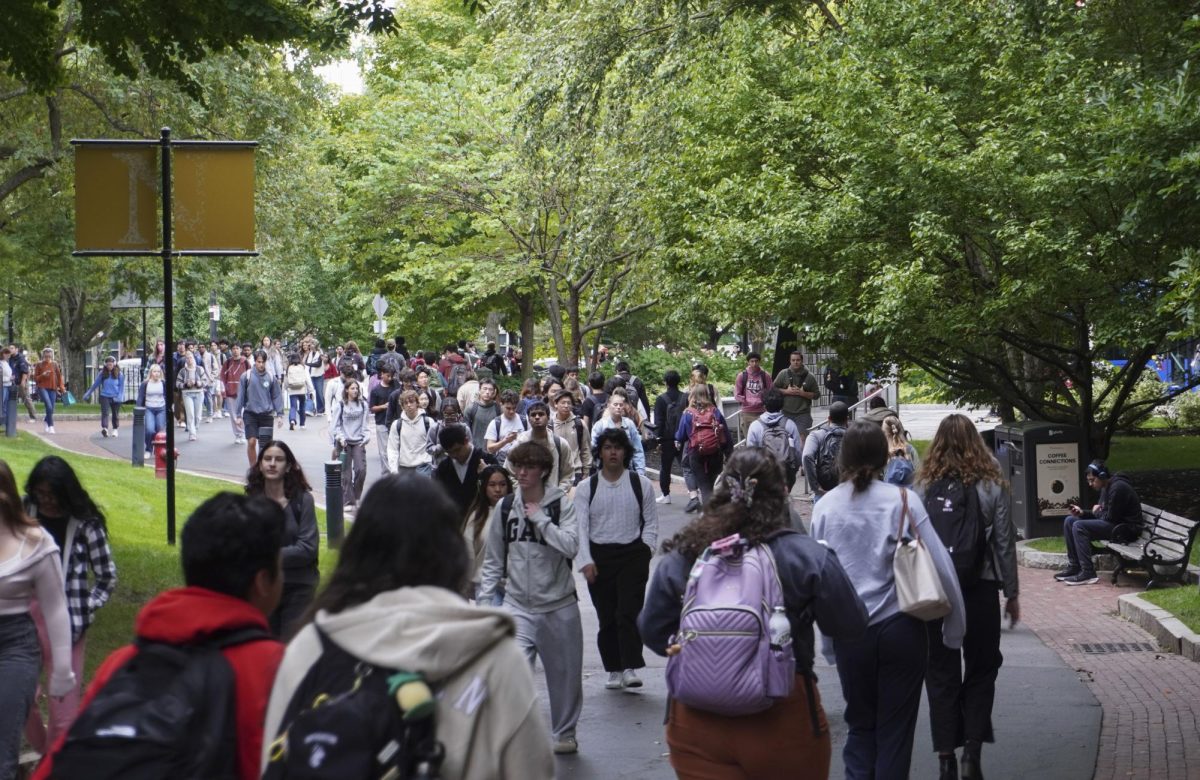So you may have heard that bananas are going extinct. If your information came from Daniel Stoller’s All Hail, “Bananawareness Week offers no solutions”, you probably think the Council for University Programs’s (CUP) Bananawareness campaign was an offensive, overblown dud dedicated to a fake issue (Feb. 21). This piece ignores some readily available facts and is out of touch with what actually happened on campus last week.
Stoller’s biggest qualm seems to be that we presented the issue as one of real concern, but that we did so in an absurd way that mocked its seriousness. A humorless campaign about something as obviously amusing as bananas would have been at odds with the student body’s interests and totally at odds with CUP’s purpose: to entertain and engage.
The insinuation that banana extinction is a “made-up crisis” is factually inaccurate. World-renowned scientists researching the topic have compared its potential effects on parts of Africa to those of the Irish potato famine. Something that is not well known is not automatically “made-up.” Hence, Bananawareness.
Further analysis of the issue yields more specific inaccuracies from the writer: The claim that the Cavendish “was [recently] developed” by humans is not true; it was simply a lesser-known species before being cultivated for mass production. And the writer’s “simple solution” claims two impossibilities: that bananas tough enough for worldwide travel can breed on their own, and that this could somehow meet global demand. This all comes across as a knee-jerk response to a topic the writer did not take the time to even Google.
Listen, it’s totally legitimate to criticize the week and its marketing, or even banana extinction itself, for whatever reasons you see fit, but writing so many untruths is inexcusable.
The most common complaint we received about Bananawareness Week is that we failed to provide information on what you can do to save the bananas, and we understand and appreciate the concern for that omission. We did not promote a solution because there is no way to save the Cavendish outside of scientific research. Whatever genetically modified or hybridized banana emerges as its successor will not be the same as the fruit we know today. End of story.
Our goal was to raise awareness so people know not to take bananas for granted.
The All Hail mocks our brochure as an insincere “call to action.” We are not an activist group, and this was not an activist campaign, it was an awareness campaign.
On that same note, the All Hail seriously misrepresents CUP’s intentions, and I apologize if these intentions went over anyone else’s head. CUP did Bananawareness for two reasons: Banana extinction is a relatively unknown, nonpolitical issue that nearly everyone can relate to, eliciting genuinely strong reactions from most people.
Our other motivation? Having a week dedicated to bananas is admittedly ridiculous, which the writer apparently thinks is a bad thing. I thought we were in college! This is one of the last time in our lives we’ll be able to do, more or less, whatever we want. And Northeastern is thoroughly devoid of the “ridiculous antics” that make college feel like college. The student body does in fact have an innate desire-and need-for fun self expression.
As a prospective student touring Northeastern, my biggest gripe was the lack of this quintessential college vibe. After receiving banana-flavored Runts and “Peelstrong” wristbands from a dancing banana, I highly doubt the pre-freshmen touring last week feel the same way I did.
– Sam Peisner is a middler sociology and communication studies major and CUP’s vice president of marketing.









